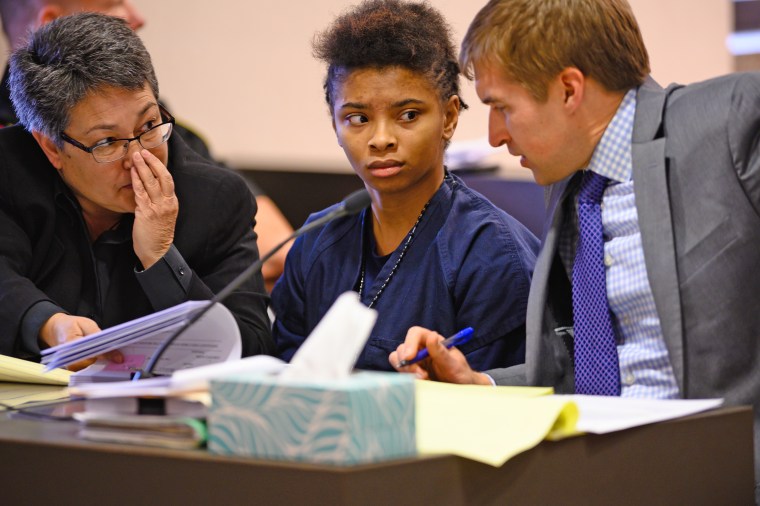A Milwaukee woman accused of killing a man who allegedly sexually assaulted her and other underage girls is entitled to an appeal using a certain type of defense strategy, a Wisconsin court ruled this week.
Chrystul Kizer, who was 17 when prosecutors say she killed Randall Volar III and set fire to his home in 2018, may be able to employ a state law adopted in 2008 and known as "affirmative defense," which means what she is accused of doing was a "direct result" of being a human trafficking victim.
Kizer was charged with five felonies, including first-degree intentional homicide. She was underage when she said Volar, 34, sexually assaulted her. Kizer, now 20, came forward publicly in a 2019 Washington Post interview from jail and said she acted in self-defense.
Download the NBC News app for breaking news
"I didn't intentionally try to do this," she said.

Kizer is awaiting trial following her release from the Kenosha County Jail last June after the case drew interest from community groups and celebrities, and supporters helped raise her $400,000 bail, which was lowered from $1 million. Her situation also drew comparisons to that of Cyntoia Brown, who was convicted as a teenager of murdering a man she said had hired her for sex and was released from prison in 2019 after then-Tennessee Gov. Bill Haslam commuted her life sentence.
Activists have also rallied around Kizer, saying her case represents the failures of the criminal justice system to protect young victims of sexual abuse and that state laws meant to help those victims are being brushed aside, while Black girls and women are being disproportionately affected. The appeals court's decision in Kizer's case had been pending for more than a year.
Kizer said she met Volar on Backpage, a now-shuttered website that featured sex ads, and that he sold her to men for sex. Kizer told The Post that on the night Volar was killed, he pinned her to the floor when she refused to have sex. Her attorneys say she lashed out against him after years of abuse.
Police said Kizer shot him in the head and set his house on fire before stealing his car, money and laptop. She also allegedly made a Facebook Live video and snapped a selfie after the fire was set and said she "wasn't afraid to kill again and making references to a rich white individual," according to a criminal complaint.
District Attorney Michael Graveley, the lead prosecutor in Kizer's case, has said the teen's actions were calculated and that there's evidence she planned his death and wanted to steal his BMW. Prosecutors also say Kizer "never indicated that she was trafficked by Volar."
Authorities have confirmed they were working on a case against Volar before his death and that he had previously been arrested and released. There is also alleged video evidence showing he sexually assaulted multiple Black girls.
If convicted of first-degree intentional homicide, Kizer could be sentenced to life in prison, although she could be given a parole eligibility date.
The Kenosha County District Attorney's Office did not immediately return a request for comment Friday about the appeals court's ruling.
Attorneys for Kizer also could not be immediately reached for comment.
